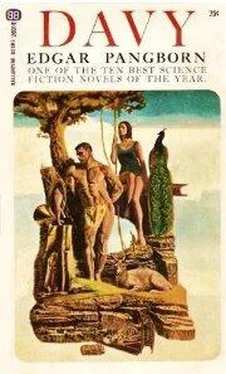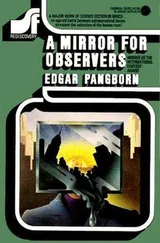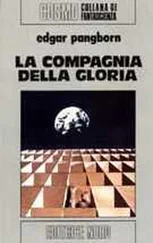The moon had shifted to whiteness, and his face was clear. I knew he wouldn’t harm me or be angry, but I was still timid with my question: “Sam, be there people that don’t believe in hell?”
“Jackson, you sure that’s the question you want to ask? I got no wisdom on such things.”
Of course, a question wasn’t the thing; it was only a way of keeping myself off the griddle and putting him on it. “I mean, Sam, I kindly don’t believe in it myself no more.”
“Seen plenty hell on earth,” he said after a while. “But that wa’n’t what you meant.”
“No.”
“Well, the Church kind — I’ve noticed the only ones that act like they want to believe it are the ones that see ’emselves safe-elected for heaven. Take old Jed theah, he don’t get no bang out’n hell. Believes all right, but kindly arranges with himself not to think about it. Doubts, Jackson?”
“Ayah.”
He was silent long enough to make me a little afraid again. “Me, I guess I’ve always had ’em… You a’n’t scared I might talk to a priest?”
“How do you know I wouldn’t?”
“I b’lieve I just know it, Jackson. Anyhow if I was you, sooner’n eat my heart out thinking that ’ere soldier’s frying account of words that didn’t get said, why, I’d undertake to wonder if the priests didn’t invent the whole damned shibundle.”
So he trusted me that much, and I could no longer have any doubt that Sam and I were both tremendous heretics and no help for it. I remember thinking: If they was to burn Sam they got to burn me along-with . And wishing I could say something like that aloud. But then it occurred to me that since he evidently knew so many of my thoughts without even trying, he wouldn’t be likely to miss that one.
What I’ve so far written about happened in a few days of mid-March. By mid-June we were only a few miles further on, for we found a place so pleasant that we holed up there for three months. Sam’s head-wound finished healing there, after a troublesome infection. We loafed, and I struggled through the first stages of learning to play my golden horn. We talked long, and made a thousand plans, and I was growing up.
The place was a cool deep cliffside cave something like the one I had on North Mountain, but this one was low in the rock wall, fourteen feet above level ground. We had no view of distances from it, but looked into lowland forest as into a vast and quiet room. Shade from the mid-day sun, and no settlement near enough to trouble us. To study the surrounding country all we needed to do was climb a nearby sentinel pine and look away. From that height I never caught sight of man except wisps of smoke from a little lonesome village six miles east of us. The Northeast Road was two miles the other side of that village, and the name of the village we never learned. It wasn’t Wilton Village — we’d slipped by that before we happened on our cave.
The only access to our hideaway was a drooping oak branch — difficult for Jed — and the only resident we had to disturb was a fat porcupine whom we hit on the head and ate because that was simpler than educating him not to come back and snuggle up to us where we were asleep.
For two weeks Sam was in bad shape from the infection, feverish and tormented by headaches. Jed cared for him wonderfully, better at it than Vilet or me, and even let Sam cuss all he liked. Vilet and I were the food-winners while Sam was sick, and Vilet searched out wild plants to make some healing mixtures for him. Her mother had been a mountain yarb-woman in southern Katskil, Vilet said, and a midwife too. She was full of stories about the old woman, and told them best when Jed wasn’t around. Sam was pretty patient with her yarb mixtures, but after a while he did get a look when he saw her coming like a man who thinks that the next tree to go over in the storm will take the roof along with it. Then toward the end of his bad time, when she’d landed him with a potion which she admitted herself would prob’ly hoist the hide off a bear and him running, Sam said: “Jackson, it a’n’t that I mind having my gizzard hit by lightning all twistyways, and I suppose I could get used to the feelin’ I’m about to give birth to a three-horned giasticutus — what I can’t no-way endure, Jackson, is the trompling.”
“Trompling?” says Vilet.
“Ayah. Ayah. Them microbes and box-terriers that go rushin’ along my gut tryin’ to get the hell away from your remedies. You can’t blame ’em, see, the way they set their feet down, only I can’t stand it, Jackson, and so if you please I’ll just arrange not to be sick no more.”
* * *
We have been living slightly more than a month on the island Neonarcheos. The Morning Star sailed two days ago, to search the region east of us where other islands appear on the old map. Captain Barr intends to make no more than a two-day voyage and then return. He took only eight men, enough to handle the schooner.
We are not calling Dion Governor, not yet, because he rather clearly doesn’t wish it. Still we all find it natural that important decisions — such as sending or not sending Captain Barr on this voyage-should be made mostly by Dion, and before long I think most of the colonists will want it formalized. We shall require something in the nature of a constitution, small though our group is, and written laws.
Back in Nuin and those other lands, the season will be chilling toward the winter rainy season; here we notice hardly any change. We have erected twelve simple houses; the brookside grass makes good thatch, though we must wait for heavy rains to test it. Seven of the buildings are on the knoll, spaced so that all have a view of the beach and the little bay, and one of the seven is Nickie’s and mine. There’s another on the beach, three along the creek, and Adna-Lee Jason with Ted Marsh and Dane Gregory have chosen to build their house away up on the hill where our stream originates. That’s a love-alliance that began in Old City long before we sailed; they need it as Nickie and I need our more ordinary kind of marriage, and Adna-Lee has been happy lately as I never knew her to be in the old days.
Aboard the Morning Star we all learned a little of what it must have been like to dwell in the jammed cities and suburbs of the last days of Old Time. I was just now rereading an ugly passage in the Book of John Barth: “Our statesmen periodically discover the basic purpose of war. They are, poor little gods, like farmers in a fix: if you have thirty hogs and only one small daily bucket of swill—? And so the finality, the apocalyptic unreason, the shared suicide of nuclear war is for them the most God-damned embarrassing thing. Their one time-tested population control is all spoiled.” A few paragraphs further on he remarks in passing that of course birth control had been a practical solution since the 19th century, except that the godly made rational application of it impossible even late in the 20th when the time was running out. What would he make of our present state, the reverse of the dismal population problem of his day?
I dare say no civilization ever completely dies. There’s at least the stream of physical inheritance, and perhaps some word spoken a thousand years ago can exert unrecognizable power over what you do tomorrow morning. So long as one book survives anywhere-any book, any pitiful handful of pages preserved somehow, buried, locked away in vault or cave — Old Time is not dead. But neither can any civilization return with anything of its former quality. Fragments we may reclaim, memory holds more than we know, there’s a resonance of ancient times in any talk of father to son. But the world of Old Time cannot live again as it was, nor should we dream of it.
Читать дальше












